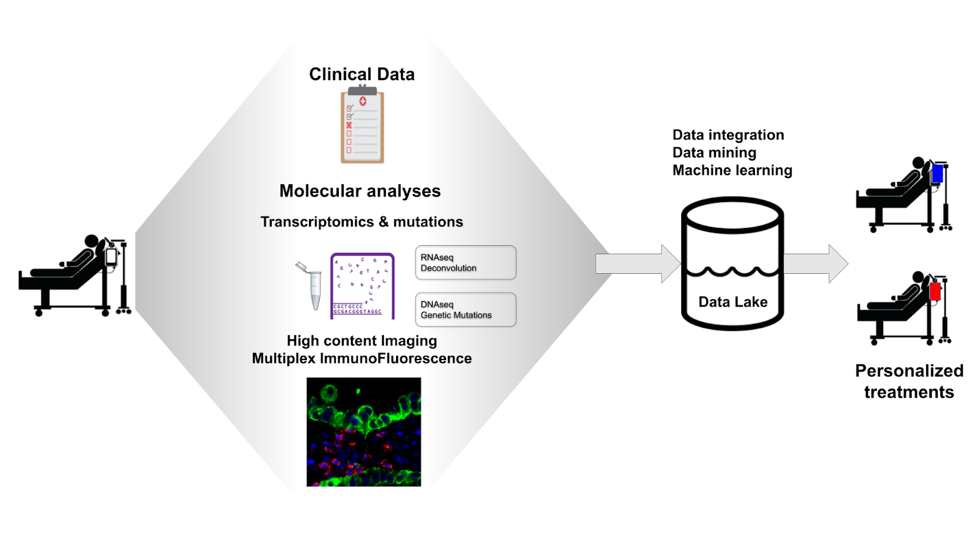LungPredict
A collaboration in Toulouse, France, between Pierre Fabre Research Institute, the University Cancer Institute and the Cancer Research Center aims to collect and integrate data to improve and personalize lung cancer therapies.
The ultimate goal of the LungPredict project is to evaluate and integrate data from patients to define personalized therapeutic strategies.
 Between 2019 and 2020 the pilot phase of this project involved recruiting 80 patients and performing sample collections and molecular analyses for final integration through bioinformatics approach, as a proof of concept that all the actors involved could efficiently collaborate on a single goal.
Between 2019 and 2020 the pilot phase of this project involved recruiting 80 patients and performing sample collections and molecular analyses for final integration through bioinformatics approach, as a proof of concept that all the actors involved could efficiently collaborate on a single goal.
LungPredict involves performing a deep molecular characterisation of lung cancer patients at diagnosis, to offer them personalized therapeutic approaches. LungPredict1 consisted in developing logistic, experimental and bioinformatic protocols, assessing the feasibility of the full project.
In this initial project, 80 patients with non-small cell lung cancer were recruited, sample collections and molecular analyses were performed for final integration through bioinformatics approaches. Blood was also collected for future analyses and all data is linked to patients’ clinical records.
RNAseq data was produced according to the detailed protocols by the Pole Technologique of the CRCT and we performed all the processing and analysis.
The initial phase of the Project consisted in using different correlation measures to estimate the reproducibility of gene expression quantification starting from FFPE and frozen samples. A detailed comparison of the two types of samples was performed on 20 samples. For all samples included (currently) we estimated the immune cell-type composition based on the bulk gene expression signature. Several deconvolution algorithms and signatures are available in the literature, so work by the team (Delfour, Pancaldi) was used to choose methods that had the best performance following a comprehensive benchmarking effort.
The RNAseq data was integrated with clinical data, which included patient’s characteristics (sex, age, smoking status, etc.) and also genetic alterations for a panel of genes.
Finally the expression profiles and deconvolution results were integrated with Multiplex immuno-fluorescence data describing presence of lymphoid and myeloid cell markers on each cell and spatial patterns in cell type composition.
Overall, this first project provided a landscape of the tumor microenvironment across different lung cancer stages through multi-omics characterisation.
Participants in the project are:
IUCT-O, Institut Universitaire du Cancer de Toulouse-Oncopole (CHU Toulouse, Institut Claudius Regaud Centre de Lutte Contre le Cancer)
- Department of Pathology (Pr. P. Brousset)
- Laboratory Medicine and Genetic Oncology (Pr. G. Favre)
- Imag’IN platform
IUCT Rangueil-Larrey (CHU Toulouse)
- Department of Pneumology (Pr. J. Mazières)
- Department of Thoracic Surgery (Pr. L. Brouchet)
Pierre Fabre Research Institute
CRCT, Cancer Research Center of Toulouse (UMR 1037 Inserm, Université Toulouse III Paul Sabatier; ERL 5294 CNRS) /
Please click here to access the press release about the “Alliance Oncopole”
LungPredict 2 : As part of this alliance between the company, researchers and clinicians, the LungPredict2 project will be launched in 2023, targeting specifically therapy resistance in EGFR-mutated patients.

Toulouse Cancer Research Center (Oncopole)
Toulouse – FR
Contact us
+33 5 82 74 15 75
Want to join
the CRCT team ?

